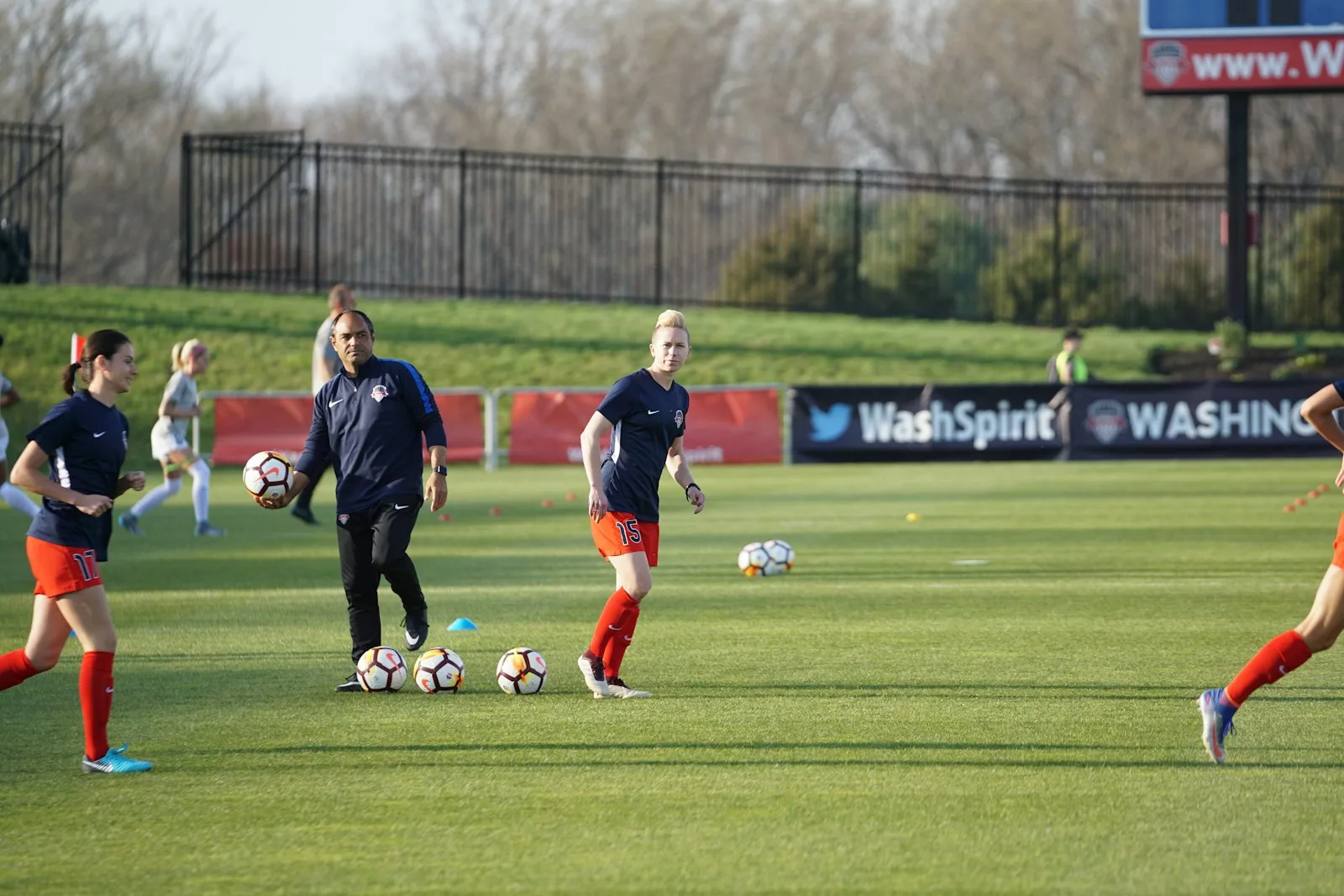Soccer, known globally as “the beautiful game,” transcends its role as a sport to become a transformative activity for physical, mental, and social development. Its universal appeal, simplicity, and dynamic nature make it a favorite pastime for millions. While the obvious perks of soccer include improving cardiovascular health and muscle tone, its less-discussed benefits—such as fostering teamwork, leadership, and problem-solving—are equally significant. Soccer is more than a workout; it’s a tool for personal growth, social bonding, and lifelong fitness.
This article explores 15 extraordinary benefits of playing soccer, focusing on how it promotes teamwork and enhances cardio fitness. We’ll delve deep into its physical, psychological, and social impacts, emphasizing why soccer remains one of the most celebrated and beneficial sports in the world.
1. Excellent Cardio Workout
Soccer is an unrivaled cardiovascular workout that challenges the heart, lungs, and muscles. A typical game involves constant running, sprinting, jogging, and walking, all of which keep the heart rate elevated for extended periods. Players often cover distances of 7-9 miles during a single 90-minute match, making soccer one of the most effective sports for building cardiovascular endurance.
The aerobic and anaerobic activities involved in soccer help strengthen the heart, improve lung capacity, and enhance blood circulation. As players alternate between high-intensity sprints and moderate activity, their cardiovascular systems adapt to these varying demands, resulting in increased stamina and resilience. Over time, regular participation in soccer reduces the risk of heart disease, lowers blood pressure, and enhances overall cardiovascular health.
2. Boosts Muscle Strength and Endurance
Soccer is a full-body workout that targets multiple muscle groups simultaneously. The repetitive running and kicking motions develop lower-body strength, while defensive movements, such as blocking and tackling, engage the core and upper body. Goalkeepers, for example, use explosive power and agility to dive and block shots, building strength across their entire body.
What sets soccer apart is its ability to combine muscle strength with endurance. Players must maintain high levels of physical activity for prolonged periods, training their muscles to sustain effort without fatigue. This combination of strength and endurance not only improves performance on the pitch but also enhances functional strength for daily activities.
3. Promotes Teamwork and Communication
Soccer is fundamentally a team sport, requiring players to work together to achieve shared objectives like scoring goals or defending against opponents. Effective teamwork in soccer is built on trust, collaboration, and communication. Players must communicate constantly to position themselves strategically, coordinate plays, and adapt to rapidly changing situations.
Beyond the field, the teamwork skills honed in soccer translate into better interpersonal relationships, professional collaboration, and conflict resolution. By fostering a spirit of camaraderie and shared success, soccer teaches players to appreciate collective effort and build meaningful connections with others.
4. Enhances Decision-Making and Problem-Solving
Soccer is as much a mental challenge as it is a physical one. During a match, players must make split-second decisions, such as whether to pass, shoot, or dribble past an opponent. These real-time choices develop critical thinking and problem-solving skills, as players analyze situations, anticipate movements, and adapt strategies.
The fast-paced nature of soccer sharpens cognitive abilities like focus, memory, and decision-making under pressure. For younger players, this cognitive training is particularly valuable, helping them develop skills that benefit academic performance and everyday problem-solving.
5. Improves Coordination and Balance
Dribbling a ball, passing accurately, and dodging opponents all require exceptional coordination and balance. Soccer challenges players to control their movements precisely, whether it’s executing a perfect shot on goal or maintaining balance during a tackle. Over time, these skills become second nature through repetitive practice and gameplay.
Improved coordination and balance aren’t just beneficial for soccer—they enhance overall physical agility and reduce the risk of injury in other activities. For children, playing soccer helps develop fine motor skills and spatial awareness, laying the foundation for lifelong physical competence.
6. Builds Leadership Skills
Soccer provides numerous opportunities for leadership, both on and off the field. Captains, for example, must motivate their team, make strategic decisions, and lead by example during high-pressure situations. Even players in supporting roles contribute to the team’s success by demonstrating accountability, resilience, and a positive attitude.
Leadership in soccer isn’t limited to giving commands—it involves inspiring teammates, resolving conflicts, and fostering a supportive environment. These skills are highly transferable, equipping players with the confidence and emotional intelligence needed to succeed in school, work, and personal relationships.
7. Encourages Healthy Competition
Competition is at the heart of soccer, but the sport teaches players to approach it with respect and sportsmanship. Players learn the importance of striving for excellence while maintaining a positive attitude, even in the face of defeat. This balance between ambition and humility is essential for personal growth and mental resilience.
Healthy competition in soccer also promotes self-discipline, perseverance, and goal-setting. These qualities are invaluable in life, helping players tackle challenges and bounce back from setbacks with renewed determination.
8. Boosts Cardiovascular Recovery
One unique aspect of soccer is its interval-based activity, which alternates between high-intensity sprints and moderate jogging or walking. This structure mimics high-intensity interval training (HIIT), a proven method for improving cardiovascular recovery and endurance.
By exposing the body to varying intensity levels, soccer enhances the heart’s ability to recover quickly and efficiently. Over time, this adaptability leads to better overall fitness, improved recovery times, and increased stamina for both athletic and everyday activities.
9. Reduces Stress and Improves Mental Health
Playing soccer is a natural stress reliever, offering both physical exertion and mental engagement. The game’s dynamic nature provides an outlet for releasing tension and clearing the mind, while the endorphins released during exercise boost mood and reduce anxiety.
Soccer also fosters social connections, which are essential for mental well-being. The camaraderie of teammates, the shared excitement of a match, and the satisfaction of collective achievements all contribute to a sense of belonging and happiness. For many, soccer becomes a source of emotional resilience and stability.
10. Enhances Flexibility and Agility
Soccer demands quick, fluid movements in multiple directions, from sharp pivots to rapid sprints. These dynamic actions improve flexibility and agility, enabling players to react swiftly to changes in the game. Regular participation in soccer enhances joint mobility and reduces the risk of injuries, particularly in the lower body.
Incorporating stretching routines and agility drills into soccer training further enhances these benefits, preparing players to handle the physical demands of the game with ease and confidence.
11. Fosters Cultural Awareness and Inclusivity
Soccer is a global sport that transcends cultural and geographic boundaries. Playing soccer brings people from diverse backgrounds together, fostering cultural awareness, empathy, and inclusivity. The shared experience of teamwork and competition creates a sense of unity, even among individuals with different perspectives and experiences.
For children, soccer provides a valuable opportunity to learn about diversity and develop social skills. By interacting with teammates and opponents from various cultural contexts, players cultivate mutual respect and a broader worldview.
12. Teaches Discipline and Commitment
Success in soccer requires consistent effort, practice, and dedication. Players must commit to regular training, maintain physical fitness, and continuously refine their skills. This discipline instills valuable habits, such as time management, goal-setting, and perseverance.
By learning the rewards of hard work and consistent effort, soccer players develop a strong sense of accountability and commitment. These traits are particularly impactful for young athletes, helping them navigate academic and personal challenges with confidence and resilience.
13. Strengthens Friendships and Social Bonds
Soccer is inherently social, creating opportunities for building lasting friendships and connections. Whether playing in a local league, a school team, or a casual pickup game, soccer fosters camaraderie and mutual support. The collaborative nature of the sport encourages players to celebrate successes together and support one another through challenges.
These social bonds extend beyond the pitch, enhancing emotional well-being and creating a sense of belonging. For many, the relationships formed through soccer become a lifelong source of joy and community.
14. Improves Bone Health
The physical demands of soccer, including running, jumping, and sprinting, are excellent for improving bone density. These weight-bearing activities stimulate bone growth and strengthen skeletal structure, reducing the risk of osteoporosis and fractures later in life.
For children and adolescents, soccer is particularly beneficial as it supports healthy bone development during critical growth years. Regular participation ensures that players build a strong foundation for long-term musculoskeletal health.
15. Provides Lifelong Enjoyment and Fitness
One of the greatest advantages of soccer is its accessibility and universal appeal. The sport can be played at any age, making it a sustainable way to stay active and healthy throughout life. Its simplicity—requiring only a ball and an open space—ensures that anyone, regardless of background or resources, can participate.
For many, soccer becomes more than a game; it’s a lifelong passion that fosters fitness, mental resilience, and social connections. Whether played competitively or recreationally, soccer offers endless opportunities for enjoyment and personal growth.
Soccer is far more than a sport; it’s a comprehensive exercise for the body, mind, and spirit. From enhancing cardiovascular health and building muscle strength to fostering teamwork and leadership skills, the benefits of playing soccer are profound and far-reaching. Its universal appeal and adaptability make it accessible to people of all ages and abilities, creating a unique opportunity to improve fitness while forging meaningful connections.
Whether you’re looking to boost your health, develop essential life skills, or simply have fun, soccer offers something for everyone. Embrace the beautiful game and experience its transformative power both on and off the pitch.




